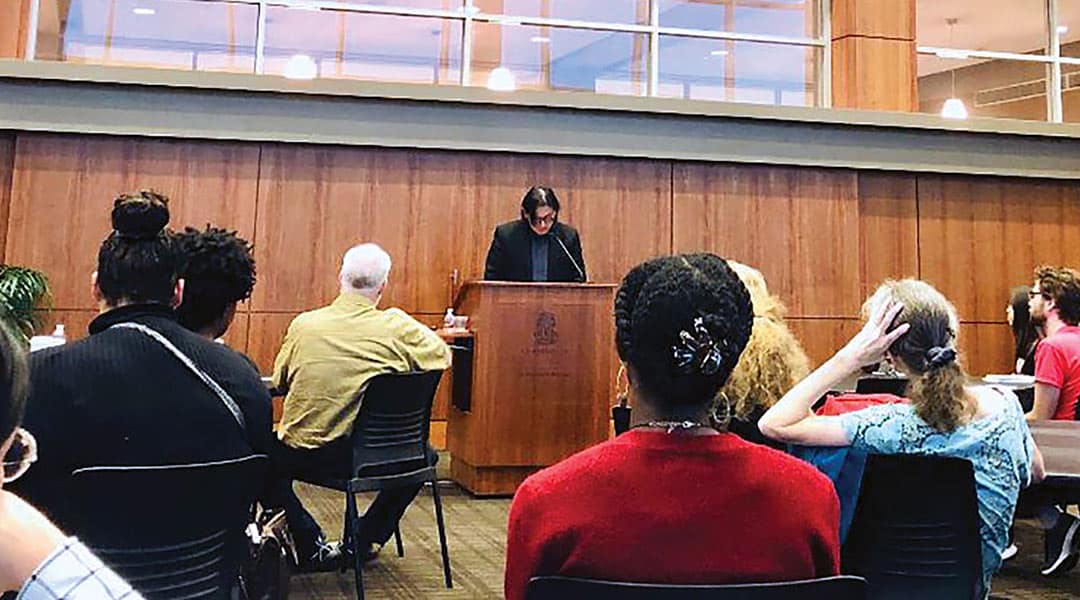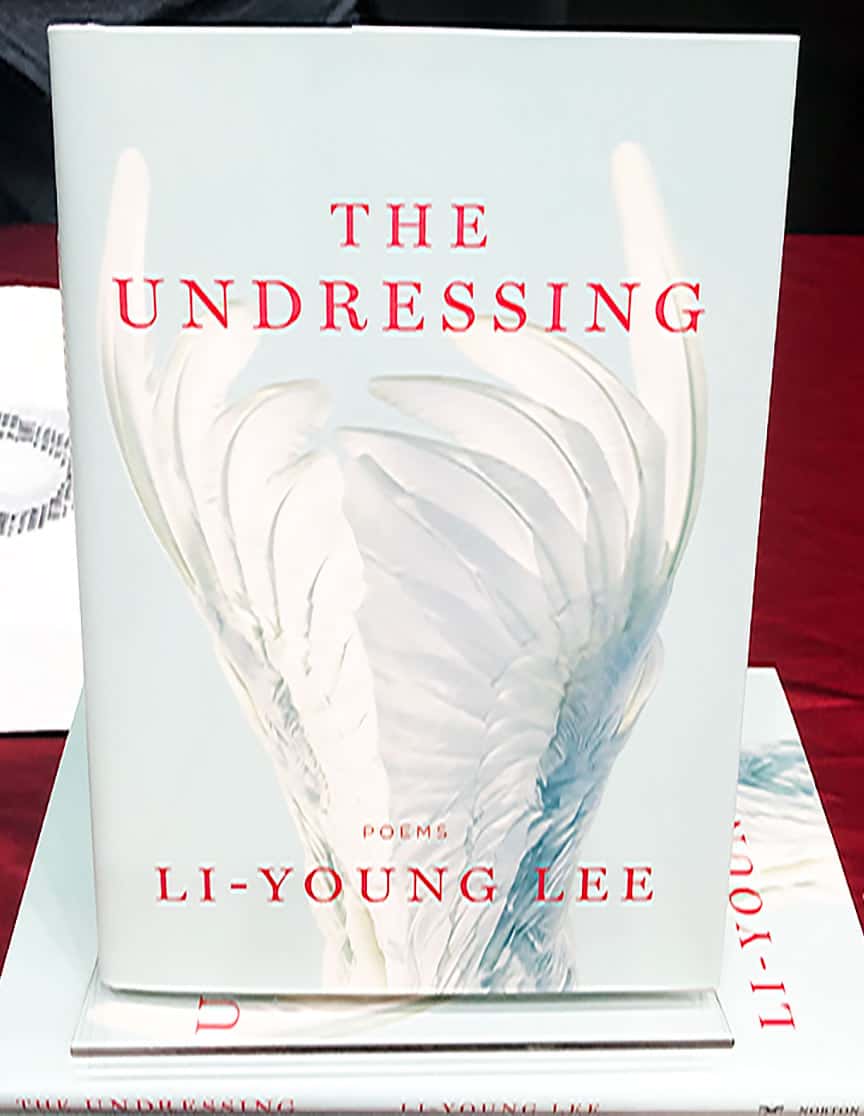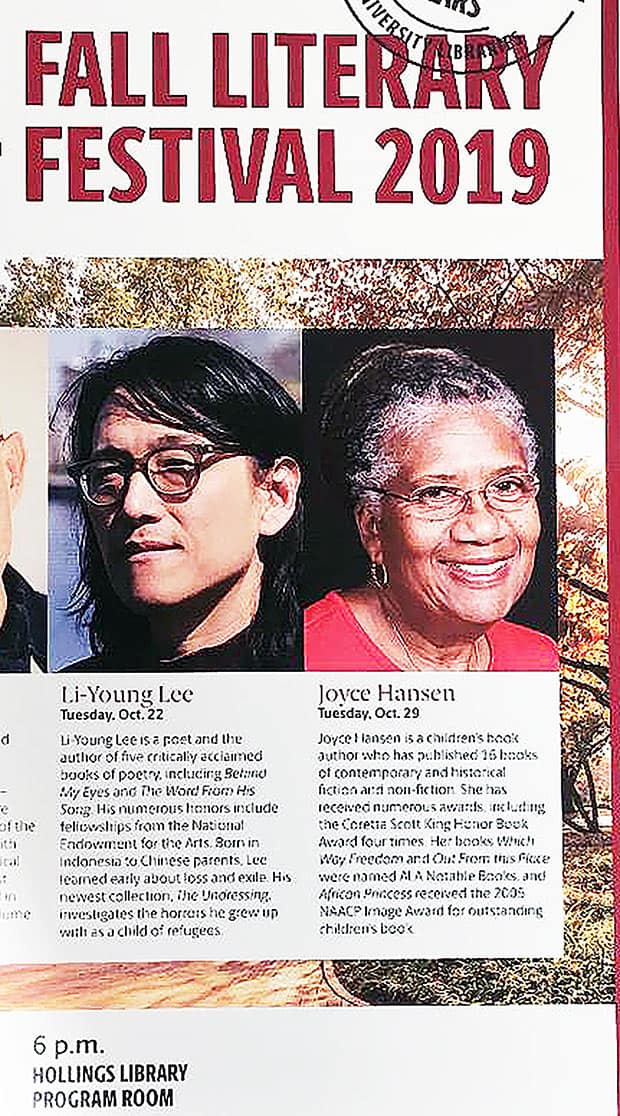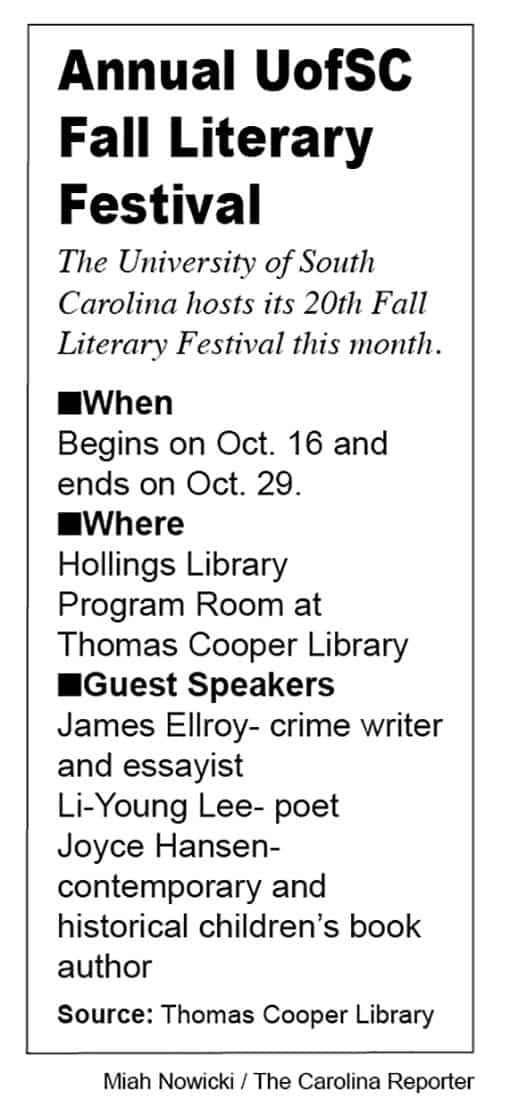American poet Li-Young Lee shares his poetry and life story. Lee’s poetry includes philosophy, sexuality, and childhood memories.
Award winning poet Li-Young Lee spoke about philosophy, sexuality, and his childhood Tuesday at the University of South Carolina Fall Literary Festival.
As the recipient of several fellowships and awards, including the “American Book Award,” Lee is recognized for his evocative poems that ponder the themes of life, death, and love.
Fred Dings, a poet who is a member of the committee of the Literary Festival, said that Lee’s poetry offers something that seems increasingly rare in American poetry.
“When so much poetry seems to be poetry of politics and neuro-definitions of self, Lee’s poetry seeks to speak from the perspective of what he calls, ‘the universal mind’. Seeking to go beyond the personal memory of himself, to that of the human race or species memory,” Dings said.
While some of Lee’s poems speak to universal themes of life and death, some reflect on his own unconventional upbringing and the socio-political issues that defined his childhood.
Born in Indonesia to Chinese parents, Lee’s maternal great-grandfather was China’s first Republican President, famous for attempting to make himself emperor. As anti-Chinese sentiment in region intensified, Lee’s father, a personal physician to Mao Zedong, was exiled and spent 19 months in an Indonesian prison camp.
In 1959, when Lee was two years old, his family fled the country to escape persecution. After a five-year journey through Hong Kong and Japan, they finally settled in the United States.
Lee attended the University of Pittsburgh, University of Arizona and the State University of New York at Brockport. In addition to writing poetry, he travels around United States to share his story.
Nicole Carrico, the communications manager at the University of South Carolina Libraries Communications Department, said the library hosts four writers – book authors, poets, essayists and graphic novelists. The authors typically teach master classes while they visit the university, giving students the opportunity to get first-hand knowledge from established authors.
“Our hope is that people learn and discover through the Fall Literary Festivals — whether that’s interest in a new author or genre, inspiration or introspection, perhaps deeper understanding of a complex issue, or simply finding joy in the moment,” Carrico said. “It’s much more than an event, it’s an experience.”
For Lee, poetry engages the invisible and is a sacred activity because he related it to God, according to Dings.
“Lee’s poetry is a quiet poetry. A special whisper that invites us in and eases us into that deeply private interior where we may converse with the past or enter the mystical terms of our existence,” Dings said. “Sometimes discovering knowledge, or healing, or fully realizing ourselves.”
Lee said to be able to write or understand some poetry, you need to be able to “read science, philosophy, theology and the Sacred text.”
He loves poetry that makes him want to keep reading.
“I don’t want to go through the world thinking, ‘I want to get something out of the world, I want to get a rise out of the world, arouse the world’. I want to know the world. That’s the beloved and the lover.”








